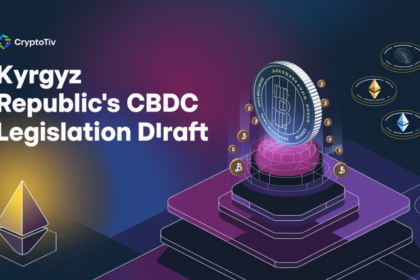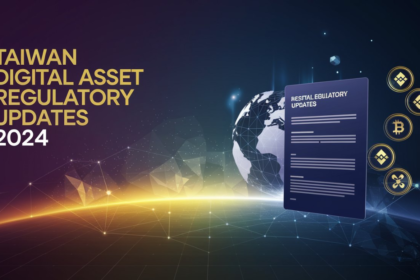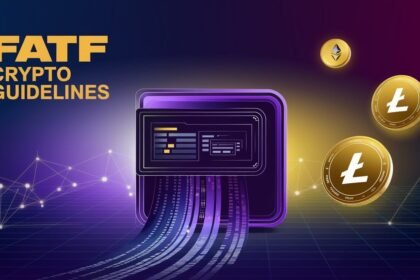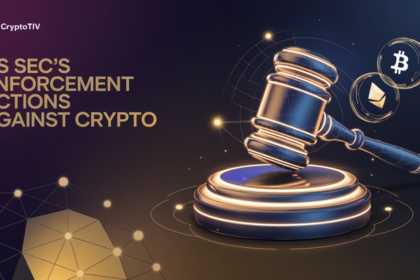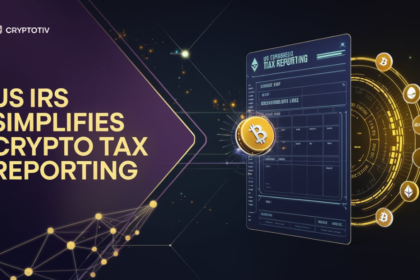South Korea’s Virtual Asset Protection Law plays a pivotal role in safeguarding crypto consumers while ensuring market stability. Implemented by the Financial Services Commission (FSC), the law mandates stringent regulations that protect consumer rights in crypto and promote crypto market transparency. VASPs (Virtual Asset Service Providers) are now required to comply with various safety and transparency protocols, helping to fortify the country’s booming virtual asset market. These regulations impact South Korea’s virtual asset exchanges and are expected to provide long-term stability to the market.
Key Features of South Korea’s Virtual Asset Protection Law
The Virtual Asset Protection Law introduces a range of consumer-focused regulations designed to enhance market transparency and security in South Korea’s crypto landscape. By requiring Virtual Asset Service Providers (VASPs) to adhere to strict compliance measures, the law ensures the safety of user assets, mandates robust reporting structures, and implements protective insurance policies. These features aim to foster a trustworthy environment for both consumers and market participants, making it a landmark move towards crypto market transparency and stability.
Cold Wallet Storage Requirement
One of the most significant features of the law is the cold wallet storage requirement. Under this provision, VASPs are required to store at least 80% of their users’ crypto assets in cold wallets. Cold wallets, unlike hot wallets, are not connected to the internet, offering greater protection from potential hacking incidents. This measure ensures that consumer assets are secured even in the event of cybersecurity breaches, a concern that has historically plagued the crypto industry. By mandating this level of storage, the law strengthens consumer rights in virtual assets and significantly reduces the risk of asset loss.
Moreover, the law enforces the calculation of stored assets based on the economic value of the user’s holdings, which must be calculated on a monthly basis. This constant evaluation ensures that VASPs maintain the necessary protections as market conditions fluctuate, giving consumers greater peace of mind regarding the security of their assets.
VASP Reporting Obligations
In addition to storage requirements, VASPs must now report suspicious activities to the Financial Supervisory Service (FSS), adding another layer of protection and oversight in the virtual asset market. This mandatory reporting is designed to combat market manipulation, fraud, and other illicit activities that can harm consumer confidence and disrupt market stability.
The law outlines a real-time monitoring system, requiring VASPs to track abnormal trading patterns and immediately report any suspicious transactions. This proactive approach empowers the FSS to intervene quickly, thereby preventing potential financial crimes from escalating. The increased transparency brought by these reporting obligations is a key factor in the law’s goal of enhancing crypto market transparency.
Here is a summary table comparing old and new reporting obligations:
| Reporting Aspect | Old Requirements | New Requirements (2024 Law) |
|---|---|---|
| Timeline for Reporting | As-needed basis | Real-time reporting |
| Penalties for Non-Compliance | Mild fines | Heavy fines, potential suspension |
| Monitoring Scope | Limited transactions | All suspicious activities |
Insurance & Reserve Requirements
Another vital aspect of the Virtual Asset Protection Law is the introduction of insurance and reserve mandates. These requirements obligate VASPs to purchase insurance or set aside reserves to compensate users in the event of a hacking incident, system failure, or other technical issues that could result in asset loss. The law sets the compensation limit at a minimum of 5% of the value of assets stored in hot wallets, calculated monthly. This provision ensures that even if assets stored online are compromised, VASPs can cover the losses.
This insurance requirement forms a key part of the regulatory framework, demonstrating the government’s commitment to ensuring crypto consumer protection. Additionally, it underscores the focus on VASP operational risk management, demanding that these platforms take necessary precautions to mitigate the risks inherent in handling large sums of digital assets.
Articles that may interest you:
Consumer Protection and Market Stability Measures
South Korea’s Virtual Asset Protection Law is designed to prioritize consumer safety while fostering a more stable and transparent crypto market. Through its strict regulations, the law ensures that users’ assets are protected, and that Virtual Asset Service Providers (VASPs) comply with operational standards that mitigate financial risk. By enhancing market stability, these measures address both investor confidence and long-term market growth in the dynamic world of cryptocurrency.
Segregation of User Deposits
South Korea’s Virtual Asset Protection LawSouth Korea’s Virtual Asset Protection Law
Note
measure not only minimizes the risk of financial mismanagement but also protects consumers in the event of a platform’s insolvency. Segregation of funds prevents VASPs from accessing these deposits without prior authorization, safeguarding users against potential financial harm. This framework supports secure virtual asset transactions and instills greater confidence in the South Korean crypto market.
Enforcement of Anti-Fraud Regulations
In addition to deposit segregation, the law introduces rigorous anti-fraud regulations aimed at curbing illegal activities like price manipulation and insider trading.
These offenses are met with severe penalties, including life imprisonment for significant violations. The law sets clear guidelines for market participants, ensuring that both individuals and companies are held accountable for unlawful practices that undermine market integrity.
To ensure compliance, VASPs must implement robust monitoring systems to detect suspicious activities, such as irregular trading volumes or price swings. These monitoring obligations are crucial for maintaining a transparent market, as they allow for the early identification of potential fraud. Failure to comply with these regulations can result in regulatory fines or even the suspension of services, reinforcing the law’s commitment to crypto market stability.
Here is a compliance checklist for VASPs to avoid fraud charges:
| Step | Action |
|---|---|
| Monitor Transactions | Use real-time monitoring tools for abnormal activity. |
| Internal Audits | Conduct regular internal audits to assess compliance. |
| Reporting | Immediately report suspicious transactions to the FSS. |
These measures underscore South Korea’s determination to create a secure environment for both consumers and market participants, while holding VASPs accountable for their role in maintaining market fairness.
Oversight and Compliance Framework for VASPs

South Korea’s Virtual Asset Protection LawSouth Korea’s Virtual Asset Protection Law
FSC and FSS Regulatory Roles
Under the new regulations, the FSC and FSS have been empowered with the authority to supervise and inspect VASPs regularly. This oversight ensures that VASPs adhere to the law’s strict guidelines, which are designed to prevent fraud, protect consumer assets, and enhance market transparency.
The FSC, as South Korea’s primary financial regulator, is tasked with ensuring that VASPs follow anti-money laundering (AML) rules, report suspicious transactions, and keep user deposits separate from business funds. VASPs that fail to comply with these requirements may face serious consequences, including business suspensions or fines.
The FSS, on the other hand, is responsible for conducting on-site inspections and reviewing the financial health and operations of these platforms. By closely monitoring VASPs, the FSS helps prevent market manipulation and ensures that consumer protection measures are properly enforced.
Additionally, both authorities can impose sanctions on non-compliant platforms. These sanctions range from fines to more severe measures like license revocation or business closures in cases of repeated or egregious violations. The FSC’s enforcement power reflects South Korea’s commitment to creating a transparent and reliable crypto market, minimizing risks for consumers and investors.
VASP Audits and Inspections
In line with their new oversight roles, the FSC and FSS are now conducting regular audits and inspections of VASPs. These audits are designed to ensure that platforms are maintaining adequate internal controls, adhering to the mandated cold wallet storage of assets, and complying with insurance and reserve requirements. These inspections are critical to building operational transparency and boosting investor trust in the market.
During an audit, VASPs must demonstrate compliance with South Korea’s stringent financial reporting and consumer protection rules. The audits not only focus on the platform’s financial health but also scrutinize how VASPs manage customer deposits and prevent illegal activities like money laundering and market manipulation. Platforms that fail to pass these audits may face steep penalties or be forced to cease operations.
Moreover, these audits are part of the broader framework for ensuring crypto exchange compliance. The FSS inspections ensure that VASPs maintain financial integrity and follow all regulatory guidelines to protect their users. Transparency is a key theme in these inspections, as platforms are required to maintain detailed records of their activities and ensure that all transactions are documented and traceable.
Penalties and Legal Enforcement of Market Integrity

South Korea’s Virtual Asset Protection Law imposes strict penalties on Virtual Asset Service Providers (VASPs) that violate market integrity or fail to safeguard user assets. These penalties range from heavy fines to criminal charges such as imprisonment. By holding VASPs accountable for illegal activities like market manipulation, insider trading, and non-compliance with reporting requirements, the law reinforces its commitment to a transparent and secure crypto market.
Criminal Penalties for Unfair Trading
The Virtual Asset Protection Law includes severe criminal penalties for unfair trading practices, including market manipulation and insider trading. Individuals or entities found guilty of using non-public information to manipulate the market or exploit insider knowledge face harsh consequences. Penalties include imprisonment of up to life sentences for significant breaches, particularly in cases where fraudulent activities lead to large-scale financial damage.
Note
stringent regulations are aimed at curbing fraudulent behavior in the crypto space and ensuring that market fairness is preserved. Insider trading—where privileged information is used to gain an unfair advantage—has been a major concern in cryptocurrency markets worldwide, and South Korea’s law seeks to eliminate this by introducing robust deterrents.
VASPs are required to maintain transparency in their operations and report any suspicious activities that could indicate market manipulation or insider trading to the Financial Supervisory Service (FSS). Non-compliance or failure to detect and report such activities could lead to criminal charges and hefty penalties for the VASPs involved.
Penalty Surcharge and Fines
In addition to criminal penalties, the Virtual Asset Protection Law mandates significant financial penalties for VASPs that fail to comply with core regulations, particularly in cases involving market fraud or the mismanagement of customer deposits. These fines act as a deterrent to ensure that platforms prioritize market integrity and consumer protection.
VASPs that do not follow segregation requirements, such as keeping user deposits separate from their operational funds, or fail to report suspicious transactions, may face substantial financial surcharges. These penalties are calculated based on the severity of the violation and the financial gains made through the unlawful practices. For instance, VASPs involved in price manipulation or insider trading may be required to forfeit all profits gained through these illegal actions, in addition to paying regulatory fines.
Note
The law allows the Financial Services Commission (FSC) to impose fines that can amount to billions of won, depending on the scale of the violation. This strict enforcement ensures that crypto platforms adhere to South Korea’s regulations for preventing unfair trading and promoting market stability. In extreme cases, non-compliant VASPs may lose their operating licenses or be forced to cease operations altogether.
Impact on Market Confidence and Investor Protection
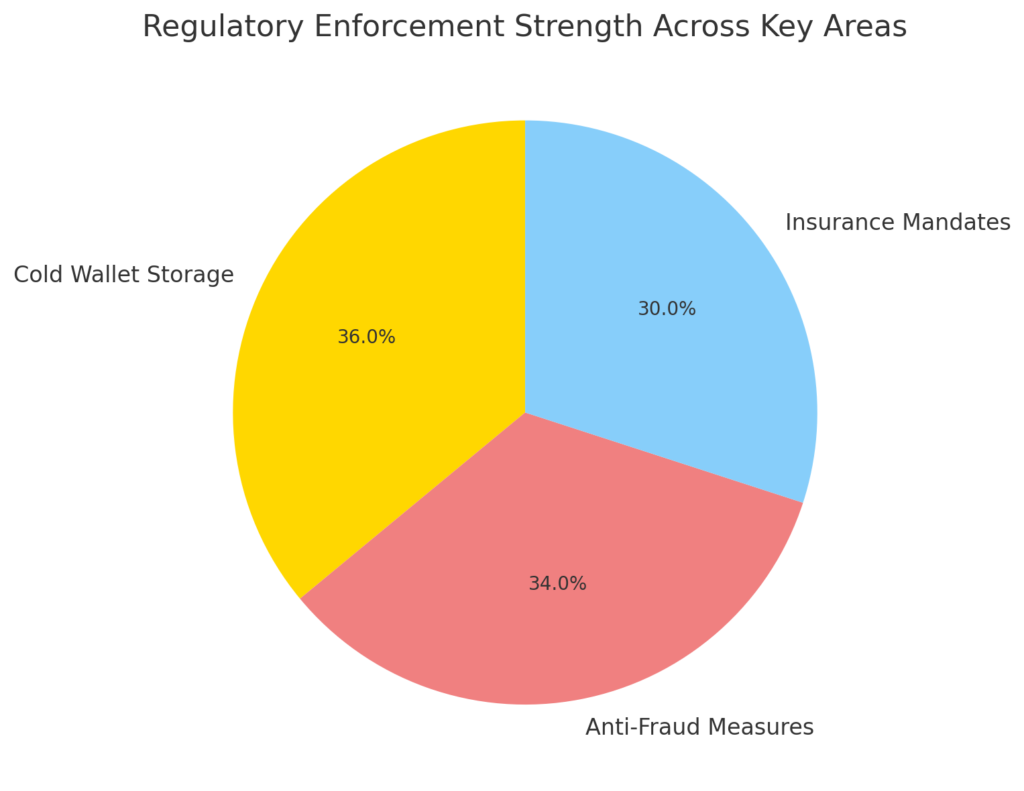
The implementation of South Korea’s Virtual Asset Protection Law is a game-changer for the crypto market, particularly in fostering investor trust and establishing long-term market stability. By imposing stringent security and transparency requirements on Virtual Asset Service Providers (VASPs), the law ensures a safer, more regulated environment for crypto traders and investors. This section examines how these regulations are poised to enhance market confidence and provide robust investor protection in the fast-evolving crypto landscape.
Strengthening Investor Confidence
One of the key objectives of the Virtual Asset Protection Law is to restore and strengthen investor confidence in the crypto sector. By mandating cold wallet storage for at least 80% of customer assets, enforcing strict reporting requirements, and holding VASPs accountable for fraud prevention, the law mitigates the risks historically associated with cryptocurrency trading. These safeguards create a more trustworthy ecosystem, especially for institutional investors, who often demand higher levels of regulatory oversight before entering volatile markets like crypto.
The law’s focus on consumer protection—such as separating user deposits from VASP funds and mandating insurance coverage—provides a safety net that reassures both retail and institutional investors. These measures are particularly important in reducing the financial risks posed by hacking incidents, market manipulation, and exchange failures. As these risks decrease, investor confidence is likely to grow, driving more capital into the South Korean crypto market.
Long-Term Market Stability
The broader implications of the Virtual Asset Protection Law extend beyond immediate consumer safeguards—it also contributes significantly to long-term market stability. The introduction of stricter operational guidelines for VASPs, such as enhanced audits and compliance inspections by the Financial Services Commission (FSC) and Financial Supervisory Service (FSS), makes it much harder for bad actors to operate within the South Korean crypto market. This increases transparency, lowers the chances of fraud, and fosters a safer trading environment.
The law ensures a more predictable and secure market structure by reducing the likelihood of hacking incidents and unfair trading practices. By focusing on cold wallet storage and real-time reporting of suspicious activities, the chances of large-scale financial losses or disruptions in the market are minimized. These provisions not only protect consumers but also promote confidence in the market’s long-term sustainability, which is vital for attracting long-term investments.












